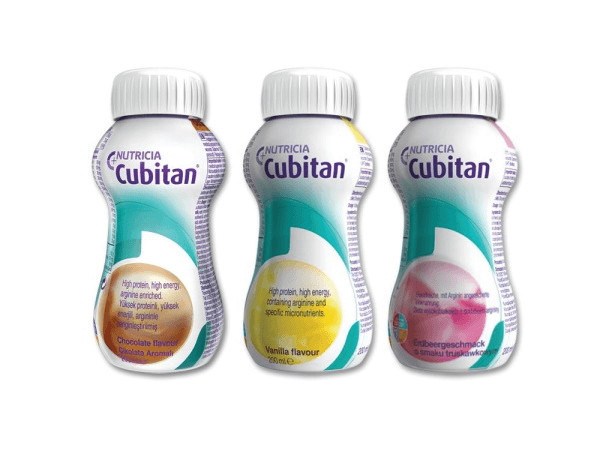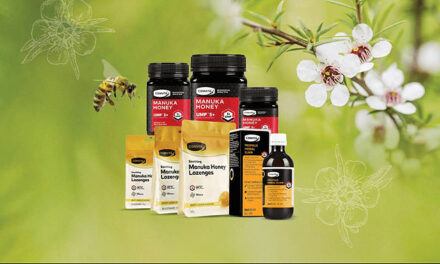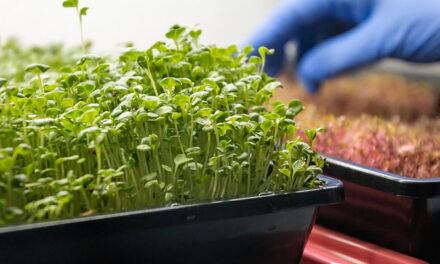Here we look into Cubitan and wound healing. You will learn about when to use Cubitan and when not to. This Cubitan Review is a must-read for those with diabetic ulcers and other chronic wounds before considering Cubitan For Wound Healing And Recovery.
Good nutrition might not be the first thing we think about in healing wounds and recovery; however, it is an essential aspect recognized by healthcare professionals worldwide.
Researchers say there is a link between malnutrition and delayed healing of wounds as well as higher infection rates. This makes it easy for malnourished individuals to develop infections, pressure wounds and delayed healing, leading to chronic wounds.
Chronic wounds, including – pressure sores or ulcers, leg ulcers, diabetic ulcers
and diabetic foot – are slow to heal or don’t heal at all.
They can lead to some serious physical and emotional stress. And so, good wound care focuses on improving the wound healing process via pressure relief, use of dressings and the right nutritional solutions.
Certain nutrients play an important role in the process of wound healing and recovery. These nutrients are present in our regular foods, but not in sufficient amounts compared to the quantity in Nutricia’s oral nutritional supplements (ONS).
This is a product review on Nutricia Cubitan, an ONS recommended by medical professionals worldwide as a nutritional support for improving our body’s healing powers in the long run.
In this Nutricia Cubitan review, we will highlight the features of Cubitan and its role in wound healing and recovery for our elderly ones living with diabetes and/or malnutrition.
Let’s start by identifying what Nutricia Cubitan really is…
What is Nutricia Cubitan?
Cubitan is a high energy, high protein, ready-to-drink dietary supplement reinforced with arginine, zinc and antioxidants.
Placed in a 200ml user-friendly bottle, Cubitan supports rapid wound healing and treatment of disease-related malnutrition.
Nutricia, a leading manufacturer of nutritional supplements, developed Cubitan for the purpose of strengthening our body’s ability to heal itself.
Thus, Cubitan is enriched with nutrients known to promote healing, boost immune function, reduce inflammation and provide the fuel or energy needed to recover.
These key nutrients include:
- Protein
- Arginine
- Carbohydrates
- Vitamin C
- Vitamin E
- Zinc
- Selenium
Cubitan can be easily purchased from Nutricia health stores or other online health stores and pharmacies at affordable prices. You can choose from a variety of 3 awesome flavours – Vanilla, Chocolate and Strawberry.
Features of Cubitan
- Protein-rich (17.6 g/bottle)
Proteins aid rapid damaged tissue repair in wounded areas, as well as improve the functionality of infection-fighting cells in the body.
- High in calories (248 kcal/bottle)
Adequate energy intake (carbohydrates) and fats, supports the maintenance of body weight during recovery or illness.
- Enriched with Arginine (3g/bottle)
Arginine promotes healing of wounds through collagen deposition.
- High in Vitamin C (250 mg/bottle)
Vitamin C encourages collagen synthesis and improves wound stability.
- High in vitamin E (38 mg/bottle)
Antioxidants properties of the vitamin stimulate wound healing.
- Enriched with zinc (9 mg/bottle)
Zinc aids protein synthesis, collagen formation and tissue regeneration.
- Enriched with selenium (64 µg/bottle)
Selenium is a part of an enzyme (glutathione peroxidase) crucial for wound healing.
- Ergonomic bottle
It comes in a user-friendly bottle, easy to open and reseal.
- Gluten-free and Halal-certified
- Low lactose (<2g/100g)
The Nutritional Content of Cubitan
A 200ml of vanilla flavoured Cubitan contains the following nutritions:
|
Nutrition |
Amount |
Value |
|
Energy |
248 |
Kcal |
|
Protein of which |
17.6 |
g |
|
Whey |
3 |
g |
|
Casein |
12.4 |
g |
|
Carbohydrate of which |
29 |
g |
|
Sugars |
14.2 |
g |
|
As Lactose |
3.4 |
g |
|
Fat |
7 |
g |
|
Fibre |
<1 |
g |
|
Water |
160 |
g |
|
Vitamins | ||
|
Vitamin C |
250 |
mg |
|
Vitamin A |
238 |
µg-RE |
|
Vitamin D |
2.6 |
µg |
|
Vitamin K |
20 |
µg |
|
Vitamin E |
38 |
mg α-TE |
|
Vitamin B6 |
1.3 |
mg |
|
Vitamin B12 |
1.58 |
µg |
|
Biotin |
15 |
µg |
|
Folic acid |
200 |
µg |
|
Pantothenic acid |
2.0 |
mg |
|
Thiamin |
0.56 |
mg |
|
Niacin |
6.8 |
mg NE |
|
Riboflavin |
1.26 |
mg |
|
Minerals | ||
|
Sodium |
100 |
mg |
|
Calcium |
450 |
mg |
|
Potassium |
300 |
mg |
|
Chloride |
160 |
mg |
|
Phosphorus |
364 |
mg |
|
Magnesium |
84 |
mg |
|
Iron |
6.0 |
mg |
|
Iodine |
50 |
µg |
|
Copper |
1360 |
µg |
|
Zinc |
9.0 |
mg |
|
Manganese |
2.6 |
mg |
|
Molybdenum |
38 |
µg |
|
Chromium |
26 |
µg |
|
Selenium |
64 |
µg |
|
Fluoride |
0.38 |
mg |
|
Other elements | ||
|
Carotenoids |
1.5 |
mg |
|
Choline |
138 |
mg |
|
Osmolality |
625 |
mOsmol/kgH2O |
What Is Cubitan Used For?
- Wound healing (for pressure injuries)
Cubitan plays a crucial role in healing due to its special formula enriched with arginine, vitamin C, zinc, vitamin E, and selenium.
It is specifically designed to aid fast healing for patients suffering from pressure injuries such as diabetic foot, diabetic sores, and pressure ulcers.
- Disease-related malnutrition (DRM)
Undernourishment and frailty can negatively affect the body’s normal functioning, including the ability to heal itself.
Cubitan is high in calories to support you when you are in poor health or recovering from an ailment by maintaining your body weight.
Additionally, it supplies your body with a good source of protein to help maintain your muscle mass.
- Post-op Recovery
Recovering from a surgery can be challenging. You may experience loss of appetite and become malnourished.
Cubitan can be used as a solution for faster wound healing, and body nutrition, alongside standard treatment and regular meals.
Pros
- As long as the doctor agrees, almost anyone can use Cubitan to improve their long term healing and health.
- Cubitan can be used to prepare meals such as quick breakfasts.
Note, that this may reduce the nutritional value of the product.
- You can purchase Cubitan in packs of 4 bottles or a carton of 24 bottles.
Cons
- Does not serve as a sole source of nutrition.
Precautions – When Not To Use Cubitan?
Cubitan is Food for Special Medical Purposes (FSMP), and that simply means it should not be taken without medical advice or recommendation from your healthcare professional.
It is not to be consumed as a sole source of nutrition, but as a supplement to your daily diet and medication.
The oral nutritional supplement may be safe, but not for everyone. Certain unique conditions, such as the ones listed below, would make Cubitan not suitable for you:
- Patients with galactosaemia
- Children under the age of 3.
- Patients with cow’s milk allergy.
Use with caution in:
- Pregnant and nursing mothers
- Children aged between 3 – 6 years.
Dosage
The amount of Cubitan you need to consume per day is to be determined by your doctor.
Although, on average, you would need to consume around 2-3 bottles of Cubitan per day, alongside your regular meals.
Once started, you do not need to take Cubitan for the rest of your life, just for a period of time needed to boost your immunity, treat malnutrition and heal your wounds.
Is Cubitan Safe For Diabetics?
People with diabetes can safely consume Cubitan along with their daily diet. It contains moderate amounts of carbohydrate to support blood sugar control and still deliver enough calories to maintain body weight.
The body system of a diabetic (type 2 diabetes) finds it difficult to metabolize glucose, which causes increased blood glucose levels.
Consequently, the body’s ability to heal is compromised.
It is common for people with diabetes to develop foot ulcers mainly because the feet are usually prone to small, unnoticed injuries.
Their wounds tend to worsen very fast and heal very slowly. As a result, an average of 19% of diabetic patients develop an ulcer leading to amputation in their lower extremities.
Cubitan’s special formula builds up your body’s healing ability, up to the point where chronic wounds such as diabetic ulcers heal quickly.
People with diabetes or their caretakers are encouraged to perform a self-check regularly, in order to catch wounds early and cut down the risk of diabetes complications.
Wound Care Tips
The best treatment is always prevention, especially since there are limited medical solutions for diabetic wounds. However, treatment for diabetic wounds can include:
- Keeping wound dressings clean and fresh
This is to reduce bacteria and maintain the right moisture levels in the wound.
- Removing dead tissue
Dead cells (necrosis) and excess tissue usually show up in diabetic wounds. Removing them can reduce bacteria and infections.
- Keep off pressure from the affected area
This could worsen the ulcer or wound.
- Expert input
Visit a wound care center or podiatrist regularly, especially when you notice the symptoms worsening.
Promote long-term healing and health by:
- Consuming Cubitan along with a healthy diet
Maintaining proper nutrition and better blood sugar control is essential to the rapid healing of your wounds.
- Stop smoking
- Stay active
Exercise every now and then to stay active and improve insulin sensitivity.
Can You Use Cubitan With High Blood Pressure?
Cubitan can be very beneficial to hypertensive patients in the long term. It contains powerful nutrients that can lower or prevent high blood pressure.
Some of those nutrients include:
- Vitamin C (250 mg/bottle)
Consuming high doses of vitamin C (up to 500 mg/day) may slightly reduce blood pressure, according to some scientists. It can remove excess fluid from your body system, acting as a diuretic, thus reducing the pressure within the blood vessels.
- Potassium (300 mg/bottle)
The more potassium you consume, the more sodium escapes through urine.
- Folic acid (200 µg/bottle):
According to researchers, folic acid (or folate) may reduce the risk of stroke and heart disease by 20%. It helps to promote blood flow and relax the blood vessels.
- Calcium (450 mg/bottle)
Consuming extra calcium helps you prevent high blood pressure, according to research studies.
- Copper (1360 µg/bottle)
Did you know that copper deficiency in adults can cause hypertension? Consuming enough copper will help you eliminate copper deficiency and reduce the risk of high blood pressure.
Can The Elderly Use Cubitan?
Yes, our elderly ones can use Cubitan. A large percentage of patients suffering from pressure ulcers are diabetics, and they are mostly elderly.
Due to old age and frailty, our seniors sometimes find it difficult to take care of themselves alone, and end up malnourished. They lose appetite or eat very little, and may develop pressure wounds from staying in bed for too long, injuries or diseases.
An article released by INMO reports the link between malnourished patients and pressure ulcers, as well as the role oral nutritional supplements (ONS) have to play.
Joanne McCarthy mentioned that malnourished patients are at a greater risk of developing pressure ulcers than those on a healthy diet.
Even the slightest pressure on their skin is enough to cause pressure ulcers. Prolonged malnourishment only worsens the case and delay the healing process.
The use of Cubitan for the malnourished elderly with pressure wounds is the optimal solution to healing their wounds and maintaining their body weight.
What Does Research Say?
A Cube study showed that the use of oral nutritional supplements (Cubitan), containing adequate amounts of energy, protein, arginine, vitamins, folic acid and zinc, improved healing and reduced wound care burden.
The study focused on non-malnourished patients with pressure ulcers in order to distinguish whether it had a direct effect on healing.
Another study published by PubMed highlights the benefits of Cubitan on pressure ulcer healing in long-term nursing care residents.
The 245 patients involved in the study took an average of 2.3 of the 200m Cubitan bottles per day, for 9 weeks along with their regular diet and standard pressure care.
The result showed a significant reduction in the pressure ulcer area and complete closure in a minor percentage of the participants.
Evidence from these studies and various others support that Cubitan has significant health benefits in wound healing (especially pressure wounds) and overall body nutrition.
Conclusion
If good nutrition supports wound healing, then naturally, undernutrition or poor nutrition does quite the opposite. Malnourishment will not only hinder the healing of your body, but also pave the way to unforeseen health complications.
In order to fast-track your healing process as an elderly or post-operation patient, you may use Cubitan to treat malnutrition and boost your healing powers.
Like every other diabetic, you may be concerned about blood sugar spikes after a meal, but Cubitan could minimize your bother.
Cubitan contains low sugar levels as carbohydrates that support better blood sugar control for people with diabetes.
Any damage to our body’s protective barrier – the skin, increases the chances of infection. This is especially true for type 1 and type 2 diabetics at a greater risk of skin failure.
Practicing good skincare as a diabetic, an elderly, or both, can greatly reduce chances of skin infections and complications.
However, wounds are sometimes unavoidable, such as those caused by surgery, injury, friction or pressure. Seniors or their caretakers can use Cubitan as a nutritional solution to boost their wound healing process and nutritional health.
Research data, as mentioned earlier in this article, has supported the effectiveness of Cubitan in the medical arena. It is safe to consume for almost everyone, save those with cow’s milk allergy and other unique conditions.









